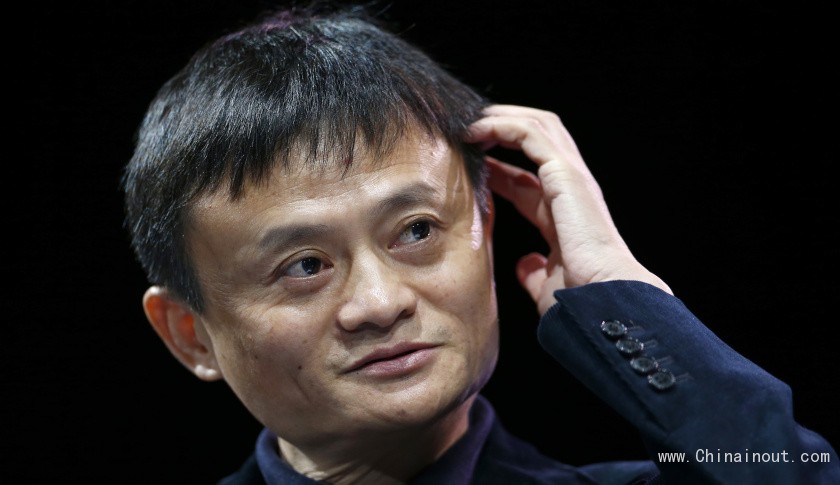上周,马云提出要让支付宝(Alipay)和苹果支付(Apple Pay)在中国合作,不过当时他的这个提议显得并不合理。
支付宝是中国当下最热门的在线支付系统,人们用它支付淘宝(Taobao)上的订单,缴纳物业费,购买电影票,还可在其他购物网站上消费。然而,支付宝的地位与拥有数万个商家和刷卡网络的Visa、万事达(Mastercard)或中国银联(unioPay)不尽相同。漫步在北京或者上海的街头,你会发现银联的标志随处可见——作为国有支付处理机构,银联在中国具有垄断地位——而支付宝的标志却寥寥无几。与此同时,苹果(Apple)的新产品——苹果支付——更多的是一种实地体验。你无需在结账柜台刷卡,而只需在与苹果签约的20万家门店内,轻松按下iPhone的home键就能完成付款。是的,苹果手机上的在线组件让在线购物变得更方便了,但它的关键还是物理组件,而支付宝的特色则是在线支付。
所以当马云抛出橄榄枝时,我们并不清楚支付宝在中国能给苹果带来什么:它在国内没有支付设施,尽管曾经有过——支付宝曾在一些商家的收银台前提供二维码,顾客可以扫描二维码来付款,而银联随后表示,支付宝必须通过银联网络才能完成支付处理。
但马云并不是轻率地开腔,这番话极有分量,即便你很难理解。就在马云在众目睽睽下与蒂姆o库克的对话刚过去两天,中国政府就宣布了将对支付政策做出巨大改变,马云的合作设想随之得到有利支持。
上周三,由李克强总理领导的中国国务院宣布,中国将对Visa、万事达和美国运通(American Express)等国外公司开放支付系统。一直处于弱势地位的支付宝也有可能位列其中。十多年来,中国一直禁止这些公司发放自己的银行卡,强迫他们使用银联网络并缴纳费用。在此期间,银联成长为一家羽翼丰满的垄断巨头。
支付宝在面对银联时遭遇了类似困境。去年8月,在银联表示支付宝的交易必须纳入银联网络后,支付宝突然宣布,由于“明显的原因”,将关闭线下销售点的服务——尽管数量非常有限。
中国商业媒体财新(Caixin)当时引用了一个消息源的说法:“支付宝决定彻底退出线下支付领域,因为它不想受到银联的控制。”
在在线支付领域,马云并没有受到银联的管控,因为这块蛋糕太大了。研究公司iResearch的数据显示,去年中国在线支付的总额达到9,000亿美元,其中几乎一半都是通过支付宝完成的。
马云著名之处,在于他总能快政府一到两步,却不会越线。其中一个例子是他在2004年创立了支付宝在线支付系统,并与200家银行签约,一举打破了银联的垄断。与苹果支付的合作似乎会是另一个成功案例。这次合作起初意义不大,但随着中国政府宣布将放开支付领域的限制,因而减少了银联对市场和支付宝的影响力,情况就大不同了。这一规定究竟将如何实施仍有待观察,但一夜之间,银联对支付宝的影响大大减少了。
马云似乎在官方发布消息之前就已经知道政策即将变化,因此才提出了和苹果支付合作的建议。阿里巴巴(Alibaba)的发言人拒绝对此发表评论。
即便中国政府有意让外国银行卡公司甚至支付宝都进入市场,但它们要成长到足以同银联竞争仍需要好几年时间。后者已经与成千上万家超市、餐厅和商铺签订了合作协议。
位于北京的弗雷斯特研究公司(Forrester)副总裁王平表示,支付宝要达成这一合作仍存在障碍。他表示:“高大上的iPhone 6用户想要在百货商场买点东西,结果店员说:‘对不起,我们不支持支付宝’——这可能不是苹果想要带给顾客的体验。”
就进入中国的问题,苹果首先选择与银联展开对话。但磋商的进展十分缓慢。到目前为止,苹果支付功能仍然未能在中国的iPhone上启用。据财新报道,双方仍在洽谈。
马云和苹果公司的潜在合作可能与中国关系不大。Counterpoint Research公司的尼尔o沙哈负责研究中国的移动市场,他表示:“阿里巴巴想做的,可能是进入美国巨大的线下零售市场。作为回报,阿里巴巴的在线产品将植入苹果支付功能,借此将其从苹果应用商店带入中国的在线零售商店。”
苹果并不是非得和支付宝合作不可,而支付宝也不是“非君不嫁”。但至少,双方可能的合作方式现在变得更明晰了。(中国进出口网)
The idea of an Alipay and Apple Pay partnership in China —suggested by Jack Ma this week—didn’t make a lot of sense when he said it.
Alipay is China’s most popular online payment system used for online purchases including Taobao orders, paying utility bills, movie tickets, and other shopping sites. It is not like Visa, Mastercard, or China’s own unioPay, which have a network of tens of thousands of merchants and swipe stations. Walk around Beijing or Shanghai and you’ll see plenty of signs for unioPay, the state-owned processor that enjoys a monopoly within China, and barely any for Alipay.

Apple’s new Apple Pay, meanwhile, is a mostly physical experience. You forgo the hassle of swiping a credit card at the cash register for the ease of touching the iPhone’s home button at two hundred thousand locations that have signed on with Apple. Yes, it has an online component that makes online shopping easier, but its allure is the physical component, just as Alipay’s allure is online.
So when Ma brought up a partnership, it wasn’t clear what Alipay could offer Apple in China: it doesn’t have payment installations across the country and even wher it did—in some stores it previously setup QR codes at cash registers that customers scanned with Alipay—unioPay told Alipay to route them through unioPay’s network.
But Jack Ma doesn’t choose his words lightly. What he says carry weight even if it is difficult to understand. Just two days after he spoke on a stage with Tim Cook in the audience, China’s government announced a massive change to the payments system that supported Ma’s idea of a partnership.
Late Wednesday, China’s State Council, the Communist Party’s 35-member policy board led by Premier Li Keqiang, announced China would open its payment system to foreign companies like Visa, Mastercard, and American Express, which it had long discriminated against. It might have well have added Alipay, which has also been disadvantaged. China has blocked foreigners for more than a decade from issuing their own cards and forced them to use unioPay’s network, handing over a cut of the fees. During that time, unioPay grew into a full-blown monopoly.
Alipay has similarly faced off against unioPay. Last August, Alipay abruptly said it shut down its offline point-of-sales service—the limited physical locations it had—for “obvious reasons” after unioPay said Alipay’s transactions must be integrated into its network. It was a bold power grab, but one with state support.
“Alipay decided to quit offline payments altogether because it does not want to subject itself to unioPay’s control,” China’s business magazine Caixin quoted a source saying at the time.
Jack Ma stopped short of submitting to unioPay’s rules when it came to online payments, however, because the stakes were too big. Alipay handled almost half the $900 billion online payments in China last year, according to iResearch.
Jack Ma is known for staying a step or two ahead of the government without creating feuds. The way he sidestepped unioPay’s monopoly in the mid-2000s by setting up Alipay’s online system with 200 banks is one example. Teaming up with Apple Pay looks like another. A partnership made little sense until China’s government announced it was opening up payments for everyone, which reduces unioPay’s influence on the market and on Alipay. It remains to be seen how the rules will be implemented, but overnight unioPay’s has less sway over Alipay.
Ma’s suggestion of an Apple Pay partnership, knowing a policy change would help it advance, looks prescient. An Alibaba spokeswoman declined comment.
Even though China’s government is intent on allowing foreigner card companies, and by extension Alipay, into the market, it will be years before any build scale to compete with unioPay, which has tens of thousands of agreements with stores, restaurants, and shops.
Forrester vice president Bryan Wang in Beijing sees a potential Alipay agreement as a hedge. “The high-end iPhone 6 user wants to buy something at a department store, and they say, ‘Sorry we don’t accept Alipay—that’s probably not the experience Apple want to bring customers,” he says.
The first conversations Apple had about coming to China happened with unioPay. But the negotiations have been slow to form. For now, Apple Pay is deactivated on iPhones sold in China. Caixin has reported that negotiations are still advancing.
It may be that the potential tie up between Jack Ma and Apple has little to do with China. “What Alibaba may be trying to do is…gain entry into the huge U.S. offline retail market and in return integrate Apple Pay into Alibaba’s online footprint from app stores to online retail stores in China,” says Neil Shah, who tracks the China mobile market for Counterpoint Research.
Apple doesn’t need Alipay and Alipay doesn’t need Apple. But at least now it’s clearer how they would work together.











